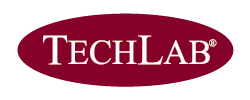Figure 1. In the United States, approximately 40% of individuals are seropositive for H. pylori antibodies.6
Test-Treat-Test strategy for H. pylori infection
H. pylori antibiotic resistance is on the rise, and rates of eradication are declining. A recent review of
H. pylori strain resistance patterns in the United States indicates resistance rates of 30-42% for clarithromycin, levofloxacin, and metronidazole.2
As a result, the American College of Gastroenterology (ACG), the American Gastroenterological Association (AGA), the Houston Consensus Conference, and the World Gastroenterology Organisation (WGO) recommend a “test-treat-test” strategy with stool antigen test or urea breath test (UBT) used to diagnose current H. pylori infection and to confirm eradication after treatment. SAT and UBT are non-invasive testing methods that offer excellent sensitivity and specificity for initial diagnosis of H. pylori infection and posttreatment testing.3

